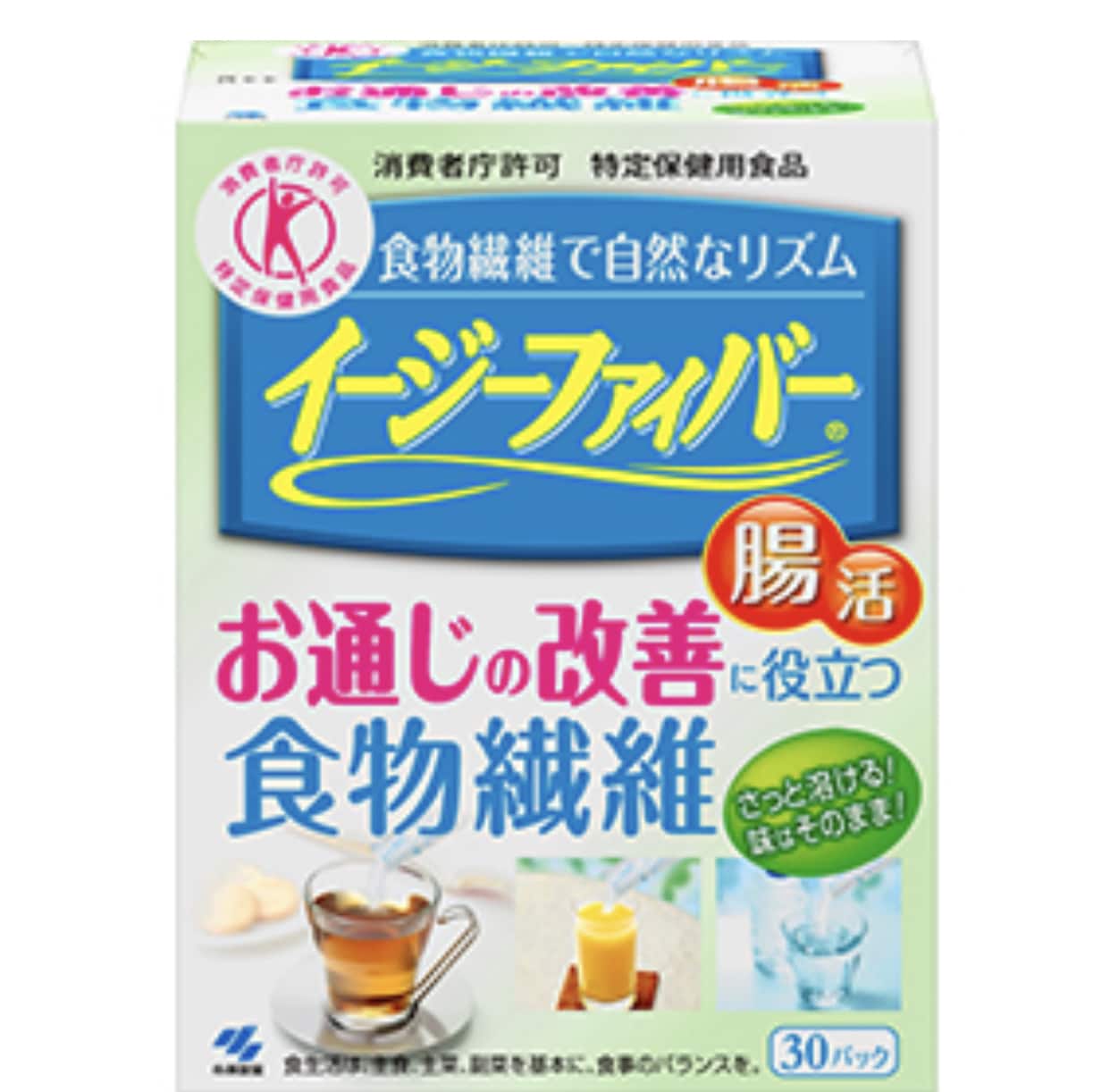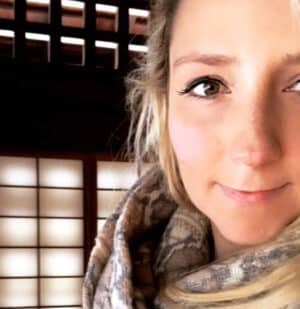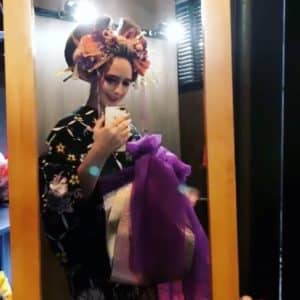
So I asked my readers ( via instagram) to send me the awkward things that they wish that they knew how to say in Japanese … and OH MY GOD did you guys send me the most random and hilarious suggestions….
Let me begin with my own story though….

When I worked at the hotel in Kobe, I was the only Native English Speakers on the team.
We rarely had international guests until there was a special event or a large international cruise liner pulled into the port for one night.
I was then “wheeled out” to deal with the international guests, many had not actually chosen to stay in Japan but rather it was just a place to stretch their legs for one evening.
This presented me with the challenges of trying to please the people who considered using alternative brand of ranch dressing to be pushing themselves to new cultural heights.
But the really funny stories for me were always when I was called out from the back office to assist a guest who spoke neither Japanese nor English.
I’d always given it a good go (incase you can’t tell from my blog, I really, sincerely love helping people.)
And a story that sticks out in my memory is the time a lovely Italian man came to the desk to sheepishly try and explain to me that he was suffering with severe constipation – and had been for some time. And the poor guy … probably in his late 40s having to tell 26 year old Aussie girl, in the middle of Japan was, understandably horrifying.
My god…there were gestures… some pointing to discretely opened then slammed shut pages of phrase books… man, there were even some pictures drawn.
I did manage to go out to the back office, at one point, once I was starting to get the idea as to what we might be errr…. dealing with here…. and google “constipated” in Italian.
I still don’t know if this is correct but what popped up was ” la costipazione” ( still.. to this day, I’m not sure if this is correct….) and…. I tried my best to repeat this back to the poor man.
Now, I majored in Japanese, okay? So my pronunciation for the Romance languages if questionable at the best of times ( hell, I… don’t even order some pasta dishes that loudly at La Porchetta for the fear of completely butchering the dish name) but I tried and I’m sure I stretched it out in my very best fake” Sopranos” meets “Joey Tribiani” style accent and …somehow… we had reached the same page!
In my memory, the poor blocked up guy and I embraced but upon reflection… it was a quiet and very posh hotel lobby in Japan so it was more likely a handshake that lingered just slightly longer than normal.
We sorted him out. We got him the meds.
It was a happy ending and the gentleman, I imagine, went on to have a lovely holiday in Japan with all …err … functions… functioning well.
But my boyfriend at the time, now my husband, had me re-tell that story many times over and, since actually is European, laughed til he cried at my newly acquired ( very most likely incorrect) Italian medical terminology. And if anyone in our family seems to be blocked up for even a day or so we whisper “la costipazione” like its our very own secret agent code for “one who is struggling with the poop.”
But, unless you would like a similar charade session or a game of google translation… then maybe you would like my cheat phrases? ( and you might, many people get blocked up on their first Japan trip as they are eating a lot more white rice than normal and the vegetables served with traditional meals are different to those you would find in, say, a western salad.)
便秘です ( bempi desu) = I am constipated
便秘薬はありますか? (bempiyaku wa arimasu ka?) = Do you have medicine for constipation?*
*For children’s constipation medicine ask for 子供用の便秘薬 ( kodomoyou no benpiyaku ).
Basically if you need to ask for a children’s version or a ‘for a child version of ANYTHING put “kodomoyou no” at the beginning. Another example? Children’s fork ? = kodomoyou no foorku
*In the past, I have bought a product called “Easy Fibre” in a Japanese drugstore and popped it in my kid’s soup of even in with the cornflakes. It’s a tasteless powder.

And if you have…err …the opposite problem?
下痢になりました (geri ni narimashita) = I have diarrhea. * This is very unfortunately if your name is GARY because the pronounciating in Japanese is pretty much the same.*
下痢どめの薬はありますか? (geri dome no kusuri wa arimasuka?) = Do you have medicine to stop diarrhea ?

It happens and here are the most succinct and polite ways to have to explain what happened.
おもらししちゃいました (omorashichaimashita ) = had an accident.
( I chose this phrase as it doesn’t need a he or she at the front to make sense. It also doesn’t specify if it is a number 1 or number 2. )
うんち ( unchi – pronounced like oo-nchi) poop
おしっこ (oshikko) pee-pee
Although the two above are the childish words, as a parent, I would still use these words in a scenario where you are referring to a child having an accident or when talking with childcare staff, even.
The proper words are:
小便 (shouben) urine
大便 (daiben) feces
オムツかぶれクレーム (omutsukabure kureemu) diaper/nappy rash cream

吐きました (hakimashita) He/She threw up ( you dont need to attach a pronoun. It is fine as is as long as you point to the …errr… perpetrator )
吐き気がする (hakike ga suru) ( I ) feel like Im going to vomit (once again. although this one is a bit vague without a pronoun…but just point and say and it will be very clear… if you don’t point it is you who feels vommy)

And what if you need tampons or pads if your period surprises you while you’re in Japan?
I mention in my Preparing for you Tokyo Chapter post here but the tampons in Japan are different to options in the UK and Australia ( I think the US has similar options though…) as they have their own plastic applicator? Anyway, there isn’t anything bad about them.. they are just different and this might be particularly daunting for teenagers.
The word for tampons is タンポン ( pronounced “tampon”) so thats an easy one to remember.
Pads or sanitary napkins are most often referred to as ナプキン (pronounced “napkin”) but if you were in the supermarket or convenience store and needed help finding them, you’d be best to ask for 生理用ナプキン(pronounced seiriyou napkin). FYI: Seiri = period/menstruation and to say ” I have my period” you can say “ima wa seirichu desu”
Period pain is 生理痛 (pronounced ‘seiritsu’)
It is unusual not to find little rubbish bins in all toilet cubicles but if you’re staying in someone’s home and wanted to ask them where to put your sanitary pads etc after you’ve used the restroom you could show them this 生理用品をどこに捨てれば良いですか? ( pronounced “seiriyouhin o dokoni sutereba yoi desu ka?” ) This is a polite but to the point way to ask, in case you are wondering.

Do you have a pregnancy test? (as in, in a drugstore) = 妊娠検査薬はありますか? pronounced ‘ Ninshin kensayaku wa arimasu ka?’
I think I’m in labour/ I think the baby is coming ! = 陣痛が始まったんだと思う pronounced ‘Jintsu ga hajimattanda to omou’
My water broke = 破水した pronounced ‘Hasui shita’

Urine Tract Infection = 尿路感染症 pronounced ‘ Nyourokan Kansen Sho’

トイレが流れません (toire ga nagaremasen) = The toilet won’t flush /the toilet isn’t flushing
トイレを詰まらせちゃった ( toire o tsumarasechatta) = I blocked/ clogged the toilet * surely, the phrase above it less awkward to say though… right? And a better visual, probably….



